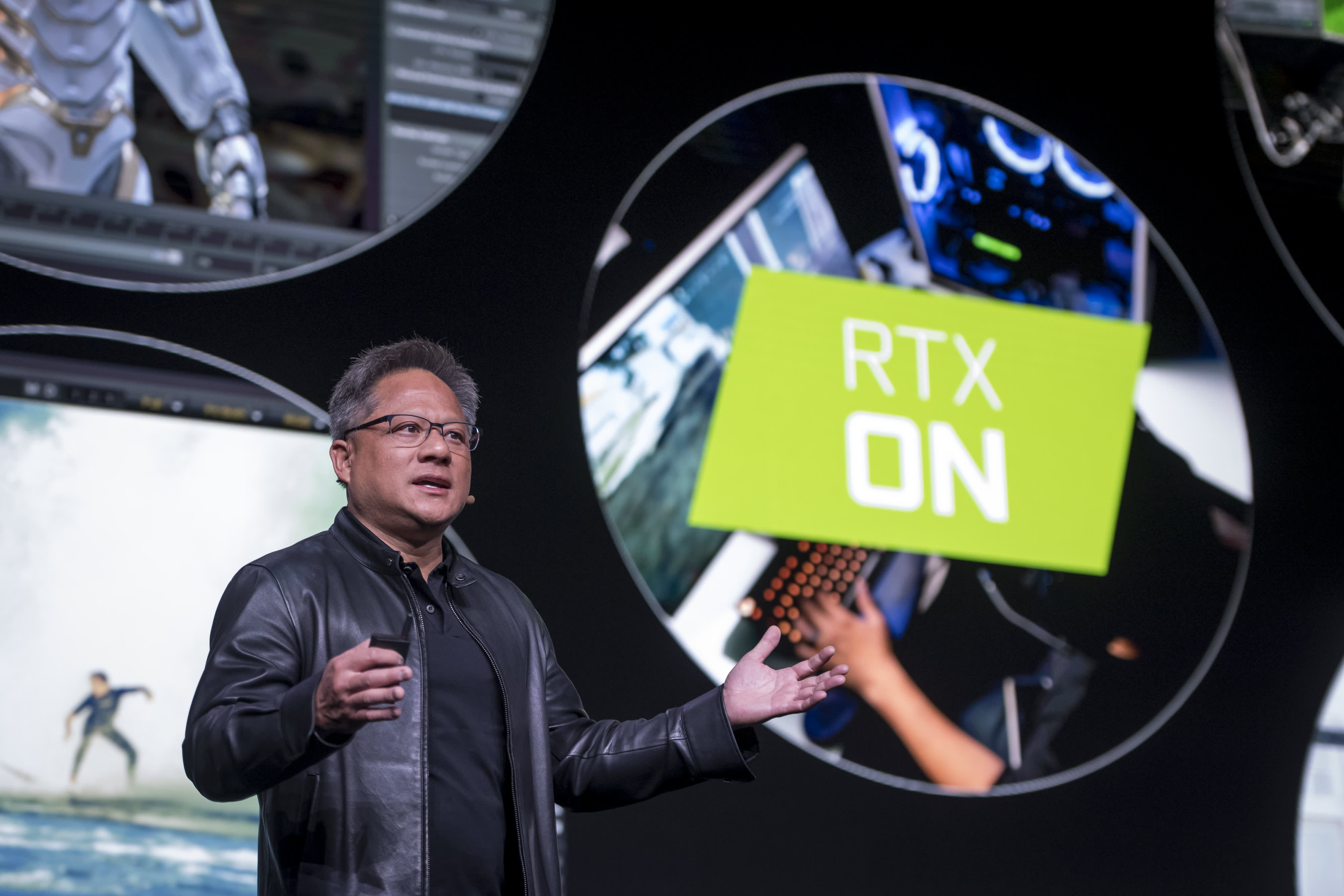
Top-performing chipmaker stock Nvidia has taken off again.
Shares rallied nearly 6% on Monday, adding to a 119% surge so far this year, after the company announced plans to acquire Arm Holdings from Softbank in a deal worth $40 billion.
Nvidia’s gains have made the stock too expensive for Laffer Tengler Investments. Chief investment officer Nancy Tengler told CNBC on Monday that some cheaper stocks in the semiconductor space offer an alternative.
“We are actually overweight the chip group and have been for quite some time. We’re playing the space with names like Broadcom and Texas Instruments — companies that have been growing their dividends are more attractive on a valuation basis,” Tengler said on “Trading Nation.”
Texas Instruments has a 2.6% dividend yield and has increased its dividend four times in the past five years. Broadcom yields 3.6% and has boosted its dividend eight times over the same stretch.
“Texas Instruments, just as an example, really showed leadership during the Covid crisis and built inventory so there would be no supply chain disruptions for their underlying customers. So we like companies like that that have a capital allocation strategy that’s friendly to shareholders,” said Tengler.
As for Nvidia, Fairlead Strategies founder Katie Stockton said recent weakness in the stock during September’s technology sell-off may have been needed after its strong performance this year.
“The uptrend [in Nvidia] had been very, very strong up until about two weeks ago when it reversed down very sharply, and that’s constructive in a way. It helps relieve what was an overbought condition that had been in place since May for the stock,” Stockton said during the same “Trading Nation” segment.
Nvidia’s relative strength index, a measure of overbought and oversold conditions, traded as high as 85 at the beginning of September, well above the 70 reading that signals overbought conditions. It has since fallen back to below 56.
“That kind of action is healthy, but I also don’t think it’s over quite yet. We’ve seen some minor relief in overbought conditions. But indeed we still need a little bit more relief to get to a support level that has any weight for Nvidia. For example, the 50-day moving average in and of itself is only about 10% below current levels, so there is still some downside there,” said Stockton.
If Nvidia declined to its 50-day moving average at $454.48, it would mark an 11% drop.
Disclosure: Laffer Tengler Investments holds Texas Instruments and Broadcom.




